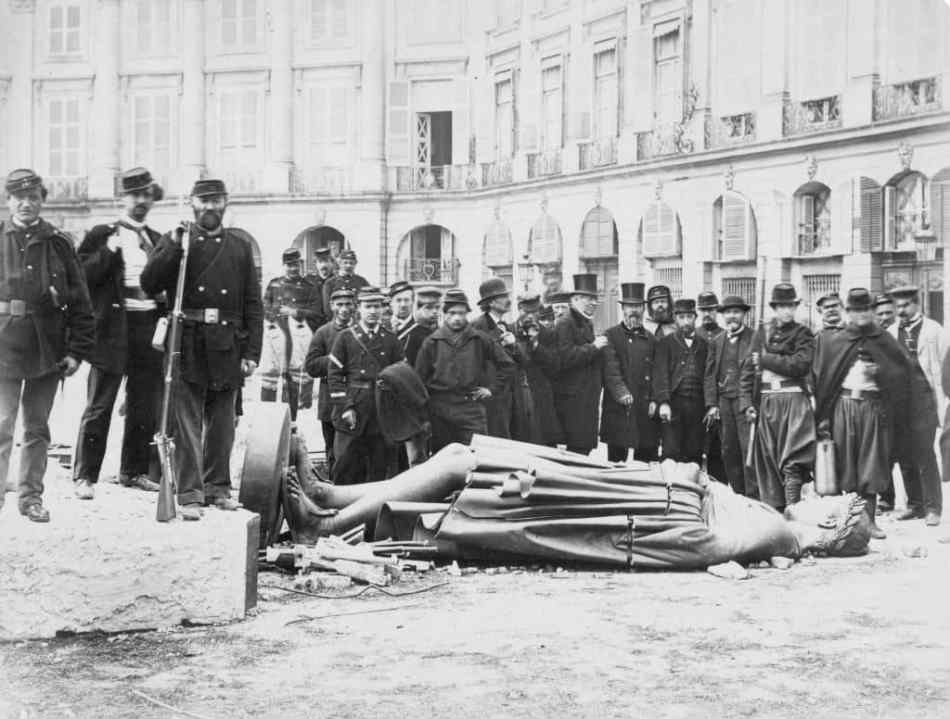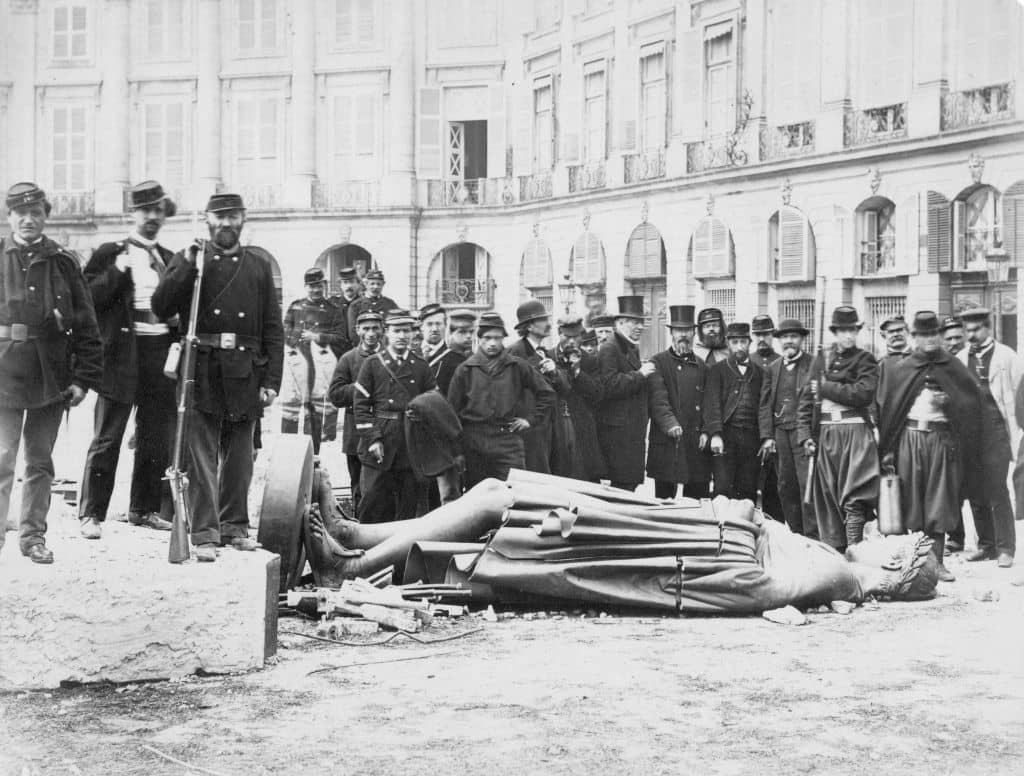When observing the state of our academic life and public culture, I have an uneasy feeling of déjà vu. When I started life as a historian, going to France to do a PhD in the 1970s, French universities were held in a tight ideological grip. The subject I was working on — the Paris Commune of 1871 — turned out, to my naïve surprise, to be a hot topic. Two older French academics who became my mentors were both convinced (I think with reason) that their careers had been blighted because they had written things that the then mighty French Communist party disapproved of. The Commune was the party’s pride and joy: the first proletarian revolution (it claimed) and hence the forerunner of the Bolshevik revolution of 1917. This gave great kudos to the French Communists, who were strongly pro-Soviet, and even Stalinist. As one of my mentors had concluded that the orthodox version failed to fit the facts, he was reviled for ‘bourgeois objectivity’. In those days, Marxists controlled the unions, the student activists, jobs, promotions, and publications.
But I, being British, had no worries. Academic freedom in the English-speaking world was taken for granted. Taboo topics that prudent French academics steered clear of were explored and written about by British, American and Canadian historians. Pioneering research on France in the second world war — ultra taboo — was carried out by North Americans.
In those days it was possible to change historical understanding by exploring the evidence. The Marxist explanation of the French revolution —also a matter of great concern to the Communist party, which practically monopolised the relevant professorships in France — was overturned by American and British historians. The orthodoxy was that the revolution was carried out by a rising bourgeoisie overthrowing a feudal aristocracy — a crucial stage in the Marxist historical process. But the ‘Anglo-Saxons’ looked in the archives and found it simply wasn’t so: many revolutionaries were nobles; many of the bourgeois were not rising; and there wasn’t much difference between nobles and bourgeois anyway.
Paying lip-service to wokeness is an insurance policy that seems to cost little and offer much
To change interpretations of the French revolution, the Paris Commune, and the second world war was not easy. There was outrage among the orthodox. They knew what the correct answer had to be because Marxist theory must be right. If evidence did not fit the theory, it was not representative. If people did not act as the theory dictated, it was because of their ‘false consciousness’. It was not only an intellectual battle, but also a political one, and it was greatly helped by the moral and political collapse of the Communist system, which deflated the Marxist balloon.
So why the déjà vu? Because of the bizarre similarity of our position now. Educational unions, student activists, jobs, promotions, and publications again demand ideological conformity. Not in all disciplines, of course, but very evidently in some: in certain historical fields, large tracts of the social sciences, the arts and literary studies. So called ‘decolonisation’ is spreading its tentacles even into music, the classics and the sciences, most obviously psychology and medicine. Even people not working in directly relevant fields must be on their guard. An incautious word, however innocuous or indeed sensible it might seem to most people, can wreck a career. As when the Communists ruled the roost, producing evidence for your opinions is not a defence: being right increases your guilt by making your challenge to orthodoxy more flagrant and dangerous. What was then ‘bourgeois objectivity’ is now ‘white fragility’ or ‘colonialist rationality’. Now, as then, dissent is to be suppressed: by no-platforming, censorship, intimidation, dismissal, even threats and actual violence.
There is one glaring difference. Then, Britain, the United States, Australia and Canada were seemingly impregnable fortresses of intellectual freedom. Even more, they were places where tolerance was not a concession, but the very foundation of intellectual life. There were plenty of conservative professors (I remember some of them) who would unhesitatingly give jobs to their political and intellectual antagonists if they thought they were clever or stimulating. I think (though I’m not so sure) that there were Marxists who reciprocated. They accepted an intellectual challenge.
And now? A far more insidious ideology — if it can be called an ideology — is extending a deadening grip not only over the educational system, but over our whole cultural life, and this time especially in the English-speaking world whose attachment to intellectual freedom has proved feeble. We tend to call it ‘wokeness’ or something similar because it is a loose collection of theories and attitudes. Some call it cultural Marxism, but unlike classical Marxism it lacks basic coherence and rigour. This fragility probably explains the reluctance of its partisans to accept debate: better to close it down. It certainly explains the anger they show when they are challenged by reason and evidence.
What makes ‘wokeness’ formidable is certainly not intellectual cogency or even numerical strength. Rather, it is the willingness of institutions —international corporations, globalised universities, civil services, museums, the media, schools, civil services, local government, and even churches — to give in to, or worse, to exploit it. Paying lip-service to wokeness is an insurance policy that seems to cost little and offer much: a fig-leaf for the privileged, a PR strategy for institutions, a path to personal advancement, a source of profit, a shield against criticism, a token of virtue, and an instrument of power.
Does it matter? Wokeness feeds off free-floating individualism that accepts few ties with or responsibilities towards the wider community and its norms. Indeed, the authority, legitimacy and even the reality of such a community — whether a local community or the wider nation — are implicitly or explicitly denied. There is only an oppressive structure containing conflicting groups.
History is one of the battlefields. At first sight trivial, conflicts over statues and public monuments — what the French aptly call ‘lieux de mémoire’ — aim to undermine our sense of trust, solidarity and pride in the past, both civic and national. As the nineteenth-century philosopher Ernest Renan put it in a famous lecture, the social capital of a people is its ‘shared possession of a rich heritage of memories’ which creates ‘present consent, the wish to live together and develop that heritage.’ Who benefits from the destruction of the heritage?
Woke activists sometimes assert that ‘facing up’ to a past presented as overwhelmingly and permanently shameful and guilt-laden is the way to a better and more ‘inclusive’ future. But the real effect — perhaps the true aim — of their actions is nihilistic destruction. Tendentious and even blatantly false readings of history are creating or aggravating divisions, resentments, and even violence. For that reason, a group of British, Irish, American, Canadian and Australian historians have formed a group called History Reclaimed to employ reason and scholarship against divisive distortions of history. As was once the case with Marxist orthodoxies, I trust that argument and evidence — ‘bourgeois objectivity’ — will in time have an effect. But even if the wokest of the woke close their ears, we are confident that reasonable people will welcome careful and balanced examination of our shared past, especially where it is most contested.








Comments